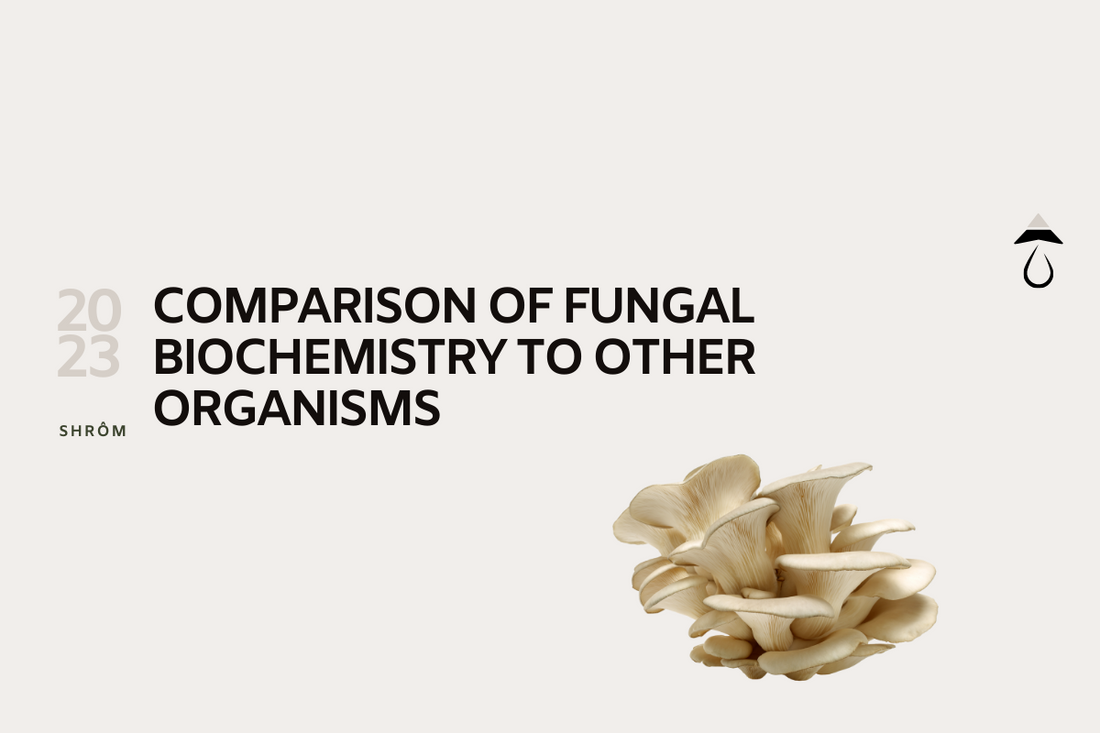Fungi have been found to have unique biochemistry compared to other organisms and have many implications in biotechnology. The study of fungal biochemistry is crucial for understanding the metabolic pathways and cellular mechanisms in fungi, as well as for discovering new sources of bioactive compounds and developing novel biotechnological applications. This blog will provide a comprehensive comparison of fungal biochemistry to other organisms and its implications in biotechnology.
Fungal Biochemistry Compared to Other Organisms:
Fungi have a distinct metabolic profile compared to other organisms such as plants, animals, and bacteria. They possess a complex and diverse array of secondary metabolites, including enzymes, pigments, and antibiotics, that play important roles in their growth, development, and adaptation to their environment. Additionally, they are capable of synthesizing a variety of organic acids and polysaccharides, which contribute to their unique carbon and energy metabolism.
One of the most remarkable differences between fungal biochemistry and that of other organisms is their ability to produce a variety of enzymes, such as cellulases, lignases, and proteases, which break down complex organic compounds into simpler forms. These enzymes are essential for the degradation of plant cell walls and other lignocellulosic materials, making fungi important decomposers in ecosystems.
Another important aspect of fungal biochemistry is their production of secondary metabolites, such as antibiotics, pigments, and mycotoxins. These compounds play important roles in fungal survival, allowing them to compete for resources and defend against predators and pathogens. Additionally, many of these compounds have useful biotechnological applications, including the development of new drugs and industrial enzymes.
Implications in Biotechnology:
The unique biochemistry of fungi has led to a wide range of biotechnological applications, including the production of enzymes, antibiotics, and other bioactive compounds. Additionally, fungi are being used as biocatalysts for the production of biofuels, bioplastics, and other industrial chemicals.
One of the most important applications of fungal biochemistry in biotechnology is the production of enzymes. Fungi have been found to produce a wide range of enzymes, including cellulases, lignases, and proteases, which can be used to degrade lignocellulosic materials and convert them into simple sugars and other organic compounds. These enzymes are essential for the production of biofuels, such as ethanol and bio-oil, as well as for the production of biodegradable plastics and other industrial chemicals.
Another important application of fungal biochemistry in biotechnology is the production of antibiotics. Many fungi produce secondary metabolites, such as antibiotics, which have important antimicrobial properties and can be used to treat a wide range of bacterial and fungal infections. Additionally, the discovery of new fungal antibiotics has led to the development of new treatments for drug-resistant bacterial infections.
Conclusion:
Fungal biochemistry is rather unique compared to other organisms and has many important applications in biotechnology. The study of fungal biochemistry has led to the discovery of new enzymes, antibiotics, and other bioactive compounds, which have important applications in a wide range of industries, including biotechnology, agriculture, and medicine. Additionally, fungi are being used as biocatalysts to produce biofuels, bioplastics, and other industrial chemicals.
